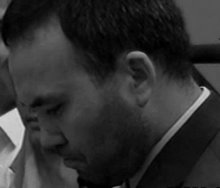
BEIJING — In a legal system shrouded in fear and intimidation, Huseyin Celil's new lawyer has told his clients to deny his involvement in the sensitive case because of potential retribution from Chinese authorities.
Mr. Celil, the Canadian religious leader sentenced to life imprisonment on terrorism allegations in China last week, decided yesterday to file a court appeal. But his lawyer is so worried about pressure from China's security forces that he has instructed Mr. Celil's family to keep his role secret.
The lawyer, Wei Rujiu, told The Globe and Mail this week that he is withdrawing from the case because of "strong pressure" from the Chinese authorities. But his client's wife, Kamila Celil, said Mr. Wei is quietly remaining on the case, while telling the family to conceal his role in the appeal.
His fears may be real. Hundreds of Chinese lawyers have been arrested in recent years and many have been beaten or sentenced to prison terms. Many have been charged with "perjury," a loosely defined term that is often used against a lawyer who frustrates a prosecutor's case.
China's legal system is heavily weighted in favour of the authorities. A recent report on more than six million court cases, covering the past eight years, found that 99.34 per cent of all defendants were found guilty. In an estimated 70 per cent of cases, the defendants are unable to hire lawyers to represent them at their trials.
"A lawyer has to have courage to handle criminal cases, especially these sensitive cases," prominent Beijing lawyer Mo Shaoping told a conference last year. "Many lawyers would rather not be involved in criminal cases. The risks are too big."
The case of Mr. Celil is one of the most sensitive in the country. The case has damaged relations between China and Canada, provoking sharp protests from the federal government because China refused to allow Canada to have consular access to its citizen. Amnesty International has voiced concern that Mr. Celil may have been convicted after an unfair trial and a confession extracted through torture. China, for its part, sees Mr. Celil as a separatist who was plotting independence for the Muslim region of Xinjiang, where China has been clamping down on activists for years.
Foreign Minister Peter MacKay is visiting Beijing next week and promises to raise the Celil case in his meetings with senior Chinese leaders.
Like many other sensitive cases, the Celil case has been pushed swiftly through the Chinese legal system, with little chance for a fair trial. He was not permitted access to Canadian diplomats or an independent lawyer. His trial was conducted behind closed doors and was completed in just five hours. His government-appointed lawyer said little to defend him.
For the appeal, Mrs. Celil and her Canadian lawyer, Chris MacLeod, decided to hire an independent Chinese lawyer. They found Mr. Wei, a well-respected lawyer in Beijing who has worked on civil-rights cases in the past. According to Mrs. Celil, he has already been paid $12,000 to handle the appeal.
In an interview last month, Mr. Wei confirmed that he had been hired by the Celil family, but was reluctant to discuss it. Last week, after the guilty verdict and life prison sentence, Mr. Wei was again reluctant to discuss the case because of its political sensitivity. He quoted a historian who had noted that every issue in the United States - including political issues - can become matters of law. In China, he said, "everything including legal issues can become matters of politics."
In an interview on Monday, he said he had decided not to take the Celil case. "I feel very strong pressure now," he said, refusing to elaborate.



No comments:
Post a Comment